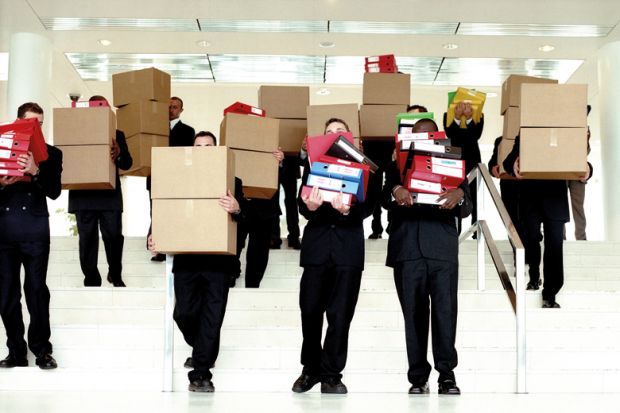The UK’s exit from the European Union could force universities to place a value on different academic fields when universities are looking to hire new staff.
That is the view of Anand Narasimhan, Shell professor of global leadership at IMD Business School in Lausanne, Switzerland, who suggested that Brexit would create “huge bureaucracy” for universities trying to bring in “skilled talent” from the Continent and that this could lead to a more fine-grained selection process from higher education institutions because “bureaucracy may value that [individual] more or less”.
“It’s also going to create a problem in hiring professors [and] the skilled doctoral talent that need to become professors,” he told Times Higher Education at the Orchestrating Winning Performance conference held at IMD last month.
“It’s clear the UK has to have a view on immigration, talking about the Australian points system and so forth, but you have to create a huge bureaucracy to be able to deal with that.
“For the next two years, it’s not an issue because [academics] can move within the EU. But [after Brexit] you’ll have to create all the paperwork to get that person in. It’s going to be a nightmare getting skilled people into the UK because you then need to create a framework that allows that, and immediately you’ll start having questions on discrimination [between fields]. ‘Why are you allowing a nuclear scientist but not a nurse?’ for example. [Universities] may value that more or less, we don’t know.”
His comments were echoed by Arturo Bris, professor of finance and director of IMD’s World Competitiveness Center, which recently published its Global Competitiveness Ranking 2016. In the list, which assesses the competitiveness of nations’ economies, the UK was ranked 19th. Although higher education proved one of the UK’s strengths – with six top 10 subcategory rankings including “researchers and scientists” and “inbound student mobility” – the country’s overall education ranking was 27.
Professor Bris said that this reflected not the UK’s investment but rather the degree to which education “meets the [demands of] the labour market”. He added that Brexit would intensify these issues.
“The availability of talent, if it doesn’t exist in the country, will be more difficult to import. [Brexit] will impose barriers,” he said. “In Switzerland, it’s number one in our ranking because it educates the talent that the country needs – financial services, engineers.”
Professor Narasimhan, who has previously worked at London Business School and at Imperial College London, added that Brexit would also affect the labour market from a student perspective and would hinder the movement of “skilled talent” within the EU.
“A huge amount of value is created by students outside the EU coming in, qualifying and staying on,” he said. “So once they start essentially putting restrictions on the movement of ‘skilled talent’, you will have huge problems in terms of getting the talent to come into the UK. That will become true of students from the Continent coming to the UK and UK students going to the Continent.”
后记
Print headline: Brexit red tape could force hard decisions




